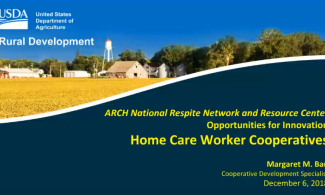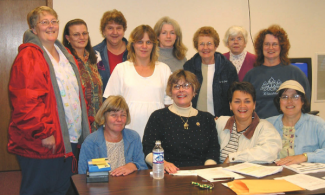
[Editor's note: while this webinar was presented in 2018, the problem of home care worker shortages has only become more dire with the fall-out of the Covid-19 pandemic, making this presentation by Margaret Bau all the more relevant today. You can find more about home care cooperatives here.]
We are in the midst of a labor force crisis in the supply of direct service workers. The home care industry experiences a 67% average annual turnover in workers. The number of workers needed to provide home care and respite is going to escalate over the next 2 decades, exacerbating the crisis. The shortage is already acute in rural areas, and worsening in urban and suburban areas as well. An emerging solution is developing across the country through Home Care worker cooperatives. In these cooperatives, the home care workers own and govern their own businesses and experience only a 30% average annual caregiver turnover. This webinar explored the reach of current home care cooperatives, their appeal for rural areas, the challenges they face in expanding to more areas of the country, and the ways that Lifespan Respite grantees, their partners and others might support their expansion.
Presenter: Margaret Bau, Cooperative Development Specialist at USDA Rural Development in Wisconsin
Margaret Bau has been a Cooperative Development Specialist with USDA Rural Development since 1998. She has assisted in the formation of over 30 cooperatives across her home state of Wisconsin in sectors as diverse as long term care, distributing local foods into regional institutions, arts marketing and galleries, conventional groceries, housing, disability support services, and converting existing businesses into employee ownership. Margaret organized Cooperative Care, the country’s first rural home care workers co-op. Harvard University named Cooperative Care a finalist in the prestigious 2004 Innovations in American Government award.




Add new comment